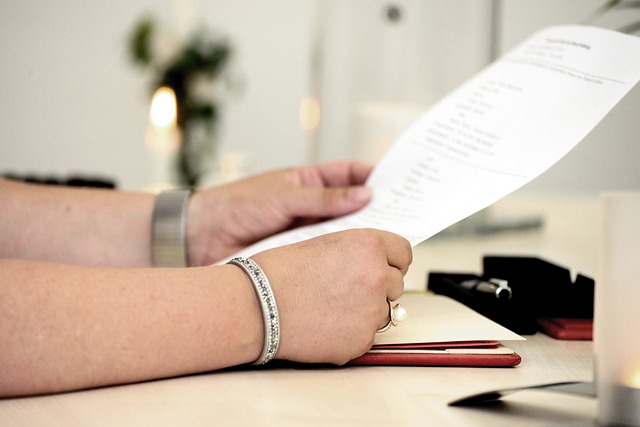For high-net-worth individuals, the prospect of significant Inheritance Tax (IHT) liabilities upon their passing can be a significant concern. Fortunately, there are strategies to mitigate this tax burden, and charitable giving is a prominent and impactful method. This article will explore how charitable donations can effectively reduce probate taxes for large estates.
Please click here to find out more about our Wills, Trusts and Lasting Power of Attorney Services.
Free Initial Telephone Discussion
For a free initial discussion on how we can help you deal with the legal implications of creating a Trust, get in touch with us today. We are also experienced in dealing with all aspects of Wills and Probate and we will review your situation and discuss the options open to you in a clear and approachable manner. Early expert legal assistance can help ensure you avoid the stress of dealing with these issues on your own. Simply call us on 0345 901 0445 or click here to make a free enquiry and a member of the team will get back to you.
Understanding Inheritance Tax (IHT)
IHT is a tax levied on the transfer of assets upon an individual’s death. In the UK, the current IHT threshold is £325,000 per person. Any assets exceeding this threshold are subject to IHT at a rate of 40%.
Charitable Giving and IHT Relief
One of the most significant tax advantages of charitable giving is its ability to reduce IHT liabilities. Gifts made to registered charities are entirely exempt from IHT. This means that any portion of an estate bequeathed to charity is not included in the taxable estate, effectively reducing the overall IHT bill.
Key Ways Charitable Donations Reduce Probate Taxes:
- Outright Bequests: The most straightforward method is to leave a specific sum of money, a percentage of the estate, or specific assets (like property or artwork) directly to a chosen charity within the will.
- Charitable Trusts: Establishing a charitable trust allows individuals to set up a separate legal entity to manage and distribute funds for charitable purposes. Assets transferred to a charitable trust are typically removed from the taxable estate for IHT purposes.
- Donor-Advised Funds: These funds allow individuals to make a contribution and then recommend grants to qualifying charities over time. While the initial contribution may be subject to IHT, subsequent grant recommendations are not.
Maximising IHT Relief through Charitable Giving:
- Careful Estate Planning: To maximise IHT relief, it is crucial to carefully plan your estate. This involves:
– Assessing your estate’s value: Accurately determining the value of your assets is essential to understand your potential IHT liability.
– Identifying your charitable goals: Determine which charities align with your values and how you wish to support them.
– Structuring your will effectively: Ensure your will clearly outlines your charitable bequests and any other estate distribution instructions.
- Seeking Professional Advice: Consulting with a qualified estate planning solicitor and a tax advisor is essential to ensure that your charitable giving strategy is structured effectively and maximises IHT relief.
Example:
- Scenario: An individual has an estate valued at £1 million.
- Without charitable giving: IHT liability would be calculated on £675,000 (£1 million – £325,000 IHT threshold).
- With a £200,000 charitable bequest: IHT liability is calculated on £475,000 (£800,000 – £325,000 IHT threshold), resulting in a significant tax saving.
Beyond IHT Relief:
- Income Tax Relief: Donations to registered charities are generally eligible for Income Tax relief. Individuals can claim Gift Aid, which allows charities to reclaim the basic rate of Income Tax on donations.
- Capital Gains Tax Relief: Gifts of assets to registered charities can also qualify for Capital Gains Tax relief.
The Role of Blackstone Solicitors
Blackstone Solicitors can provide expert legal guidance on all aspects of charitable giving and estate planning for high-net-worth individuals. Our experienced team can assist with:
- Drafting wills and trusts: We can draft comprehensive wills and trusts that incorporate charitable giving in accordance with your specific wishes.
- Managing the probate process: We can guide you through the probate process, ensuring that your charitable bequests are administered efficiently and effectively.
Conclusion:
Charitable giving offers a powerful means of reducing probate taxes for large estates while simultaneously supporting worthy causes. By carefully planning your estate and seeking professional advice, you can ensure that your charitable intentions are fulfilled and that your loved ones inherit the maximum benefit from your estate.
How we can help
We have a proven track-record of helping clients create Trusts. We are a multidisciplinary firm and have all the expertise inhouse to satisfy the most exacting requirements of our clients. We will guide you through all the necessary legal due diligence in a comprehensive and timely manner. We firmly believe that with the right solicitors by your side, the entire process will seem more manageable and far less daunting.
How to Contact Our Wills and Probate Solicitors
It is important for you to be well informed about the issues and possible implications of creating a Trust. However, expert legal support is crucial in terms of ensuring your wishes are met as you would want them to be.
To speak to our Wills and Probate solicitors today, simply call us on 0345 901 0445, or click here to make a free enquiry. We are well known across the country and can assist wherever you are based. We also have offices based in Cheshire and London.
Disclaimer: This article provides general information only and does not constitute legal advice on any individual circumstances.



